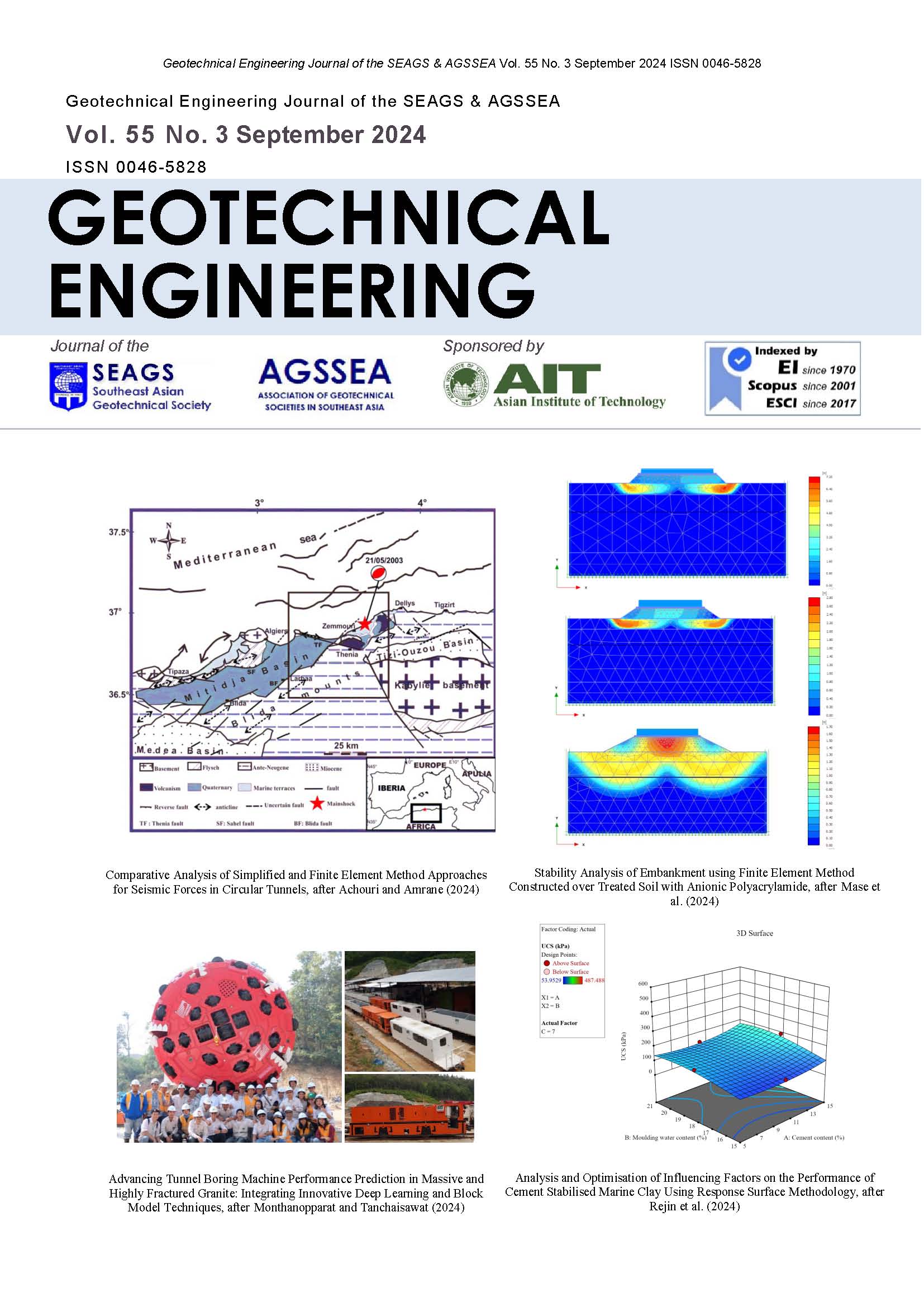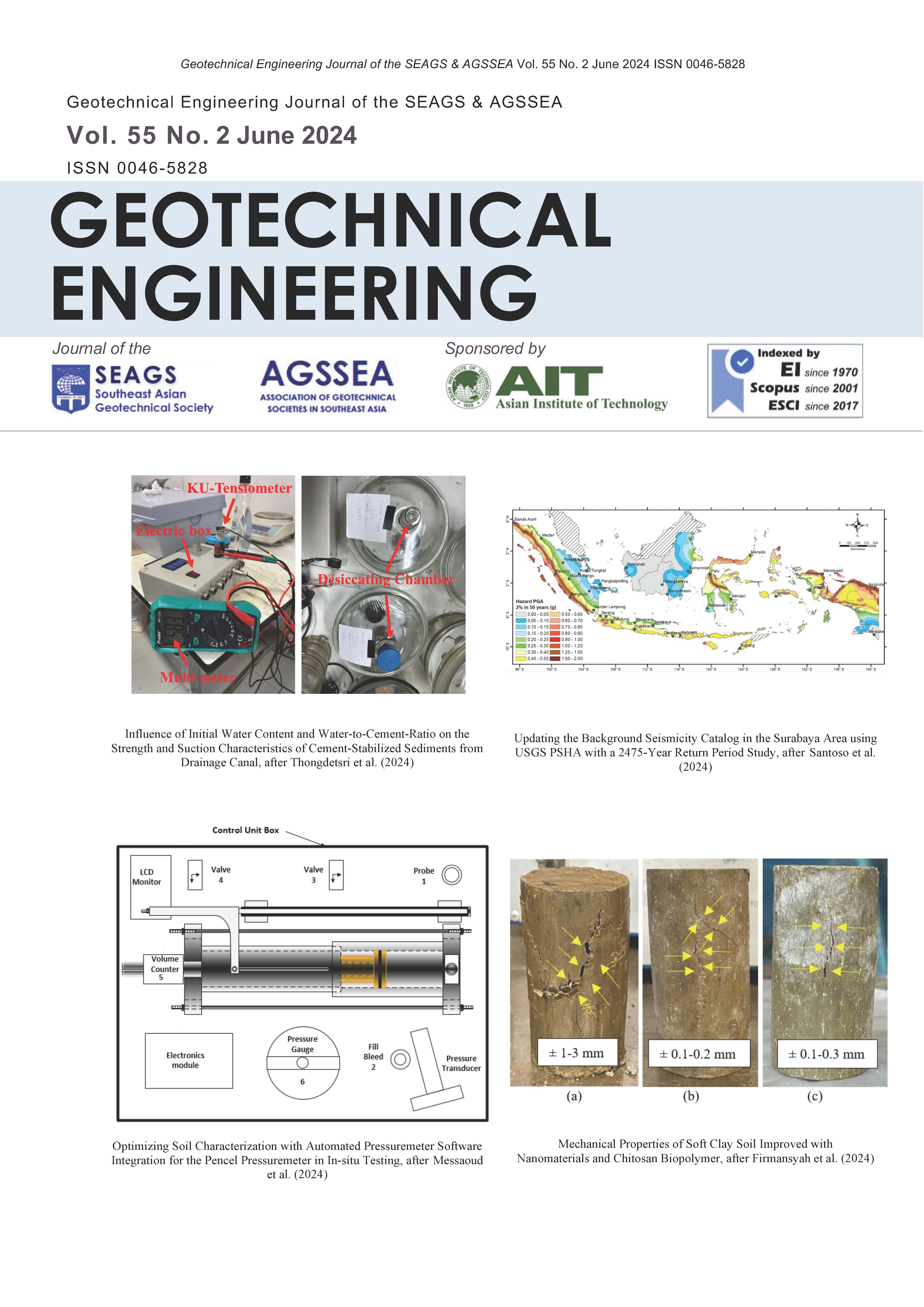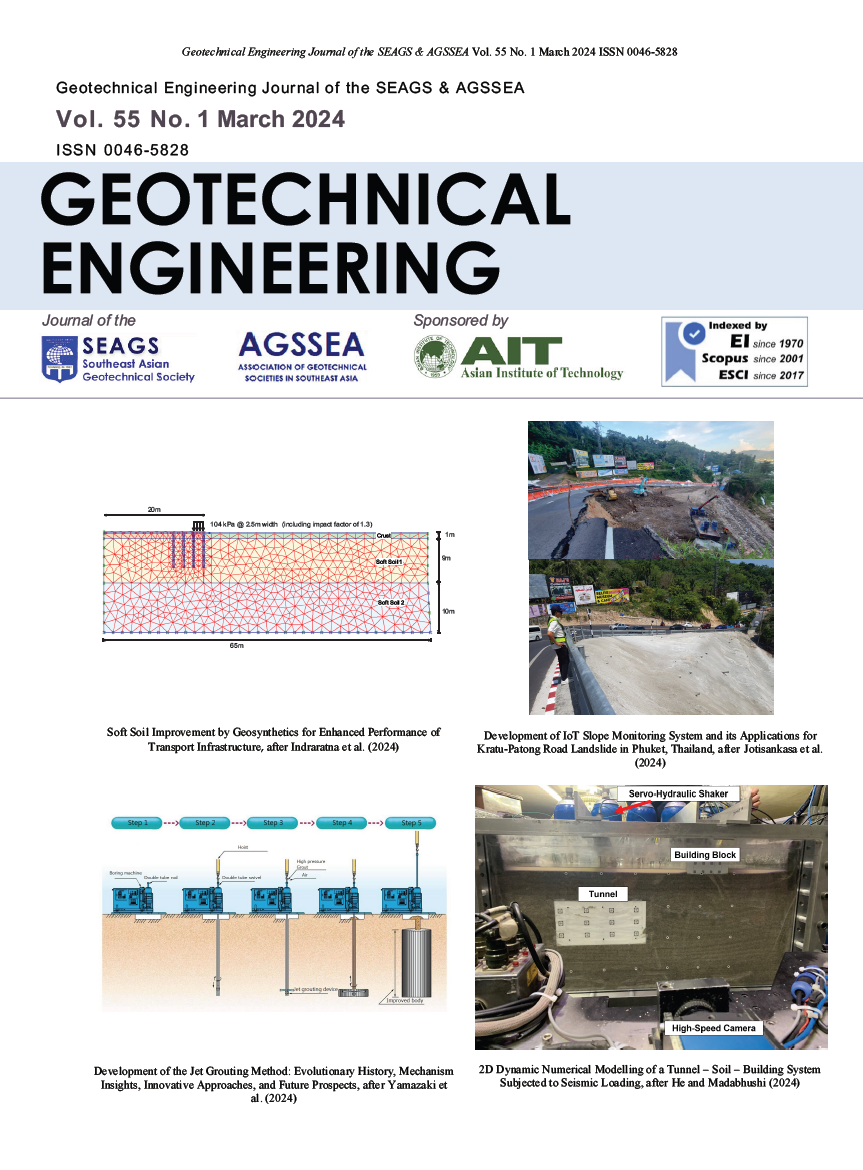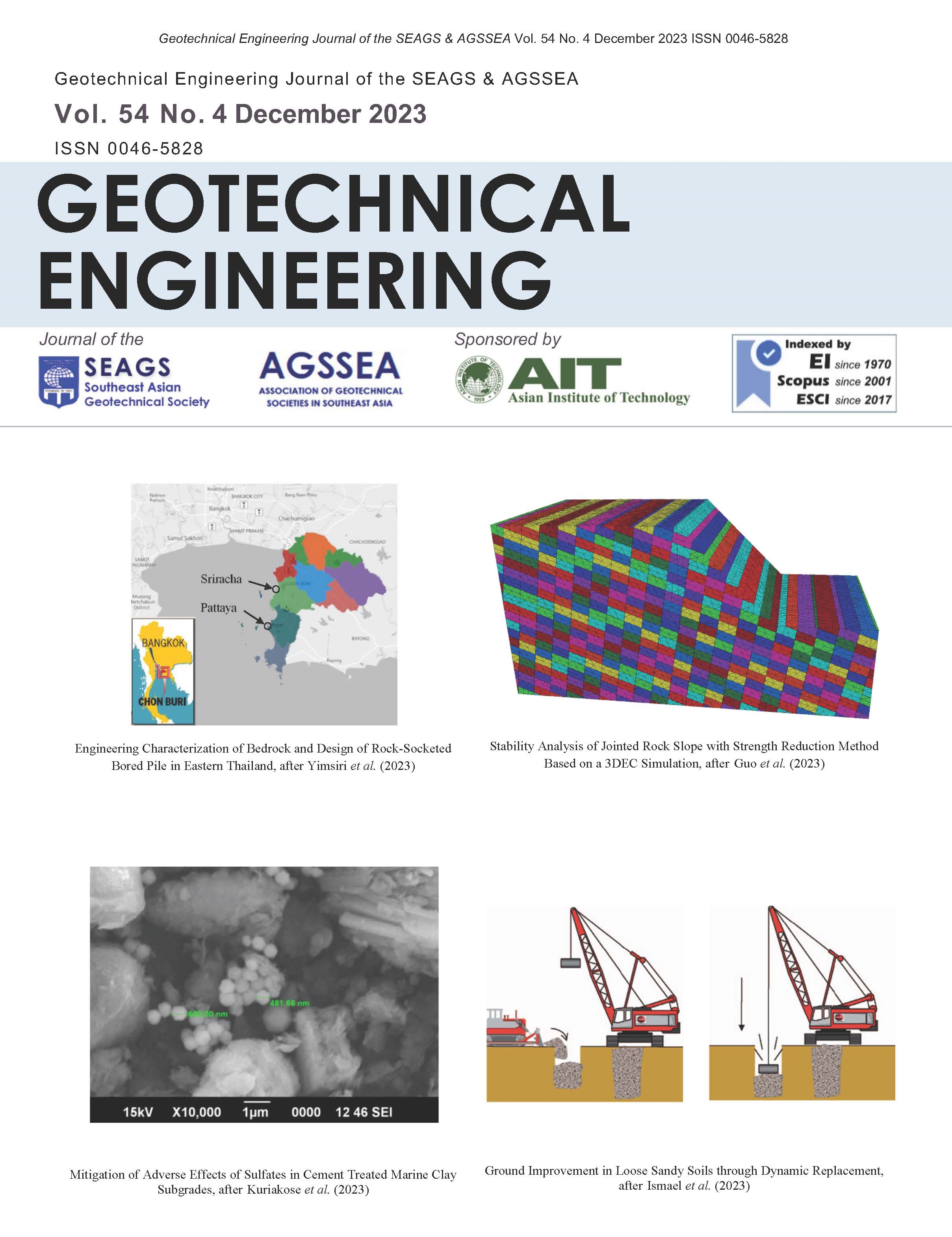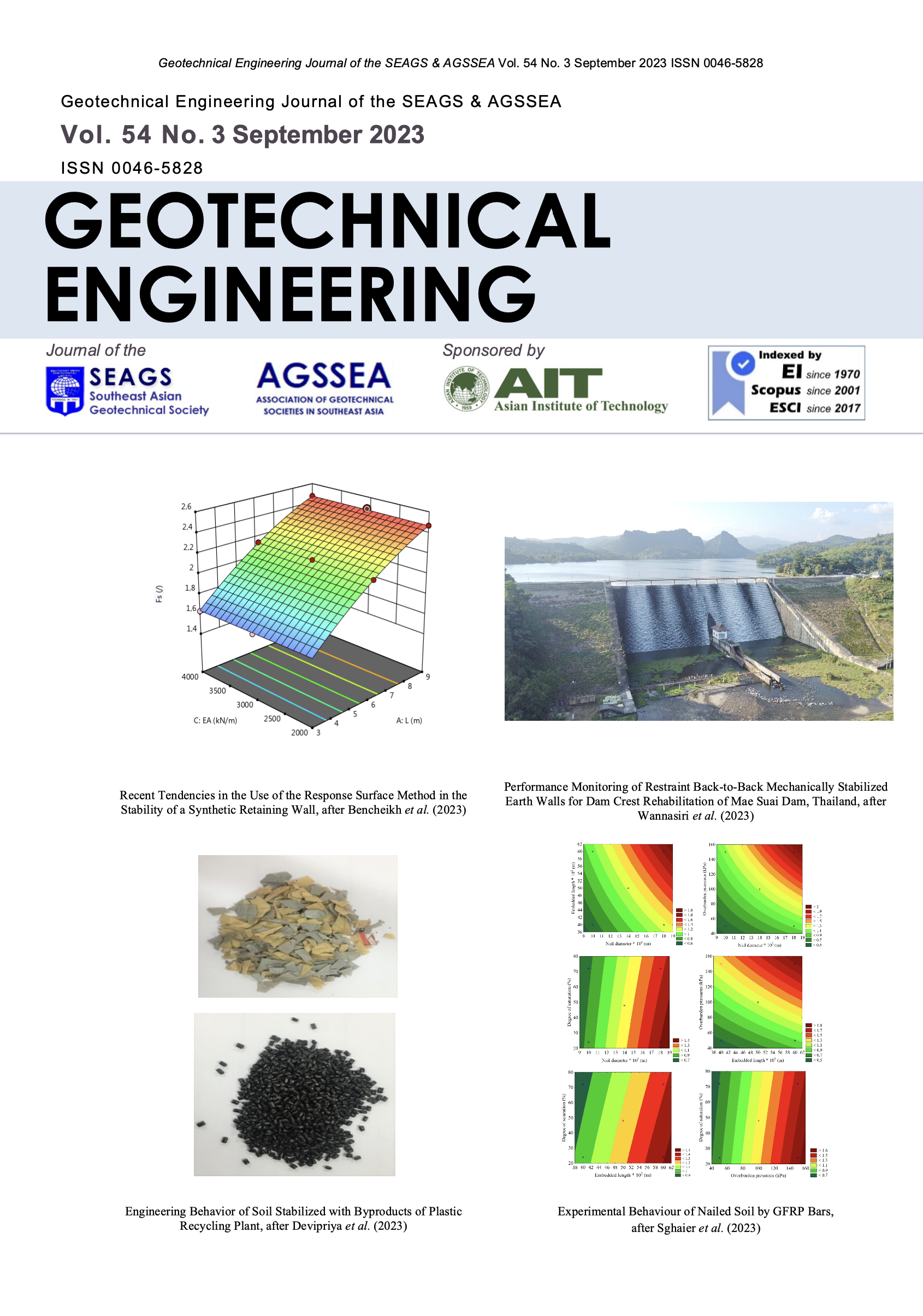Geotechnical Engineering Journal of the SEAGS & AGSSEA ISSN 0046-5828
Vol. 46 No.1 March 2015
Laboratory Investigation of Hot Mix Asphalt Behaviour for Mechanistic-Empirical Pavement Design in Tropical Countries
T. Chompoorat and S. Likitlersuang
ABSTRACT: To enhance the quality and efficiency of road design and construction it is necessary to elevate the comprehensive behaviour of the materials employed. Southeast Asian including Thailand, located in the tropical zone usually experiences an extreme weather condition of hot temperature and high humidity. This severe environmental condition is believed that it could reduce the performance and accelerate the aging process of the pavement. The material widely used in the construction of pavement in the Southeast Asian countries and perhaps all over the word is an asphaltic concrete mixed from the AC 60/70 asphalt binder and aggregates. Referring to the theory of mechanic it can be concluded that the asphaltic concrete is a thermo-visco-elastic material which its principle behaviours are caused by strain rate and temperature. To understand the mechanical behaviour of asphaltic concrete, this research aims to integrate the mechanical properties of asphaltic concrete, including stress-strain-strength characteristic, permanent deformation, and moisture damage. The experiments were run through an unconfined compression, an indirect tensile, a resilient modulus, and a dynamic creep tests under various temperatures and different strain rates. The results from this study lead to a high level of understanding in mechanical behaviours and failure mechanism influenced by strain rate and temperature as well as moisture. Moreover, the outcome of this research can be used to define the mechanistic-empirical equations for damage prediction. This research could hopefully enhance the development of pavement design in Thailand based on mechanistic design concept.
KEYWORDS: Pavements and roads, Laboratory Tests, Hot Mix Asphalt, Strength, Creep, Moisture damage









